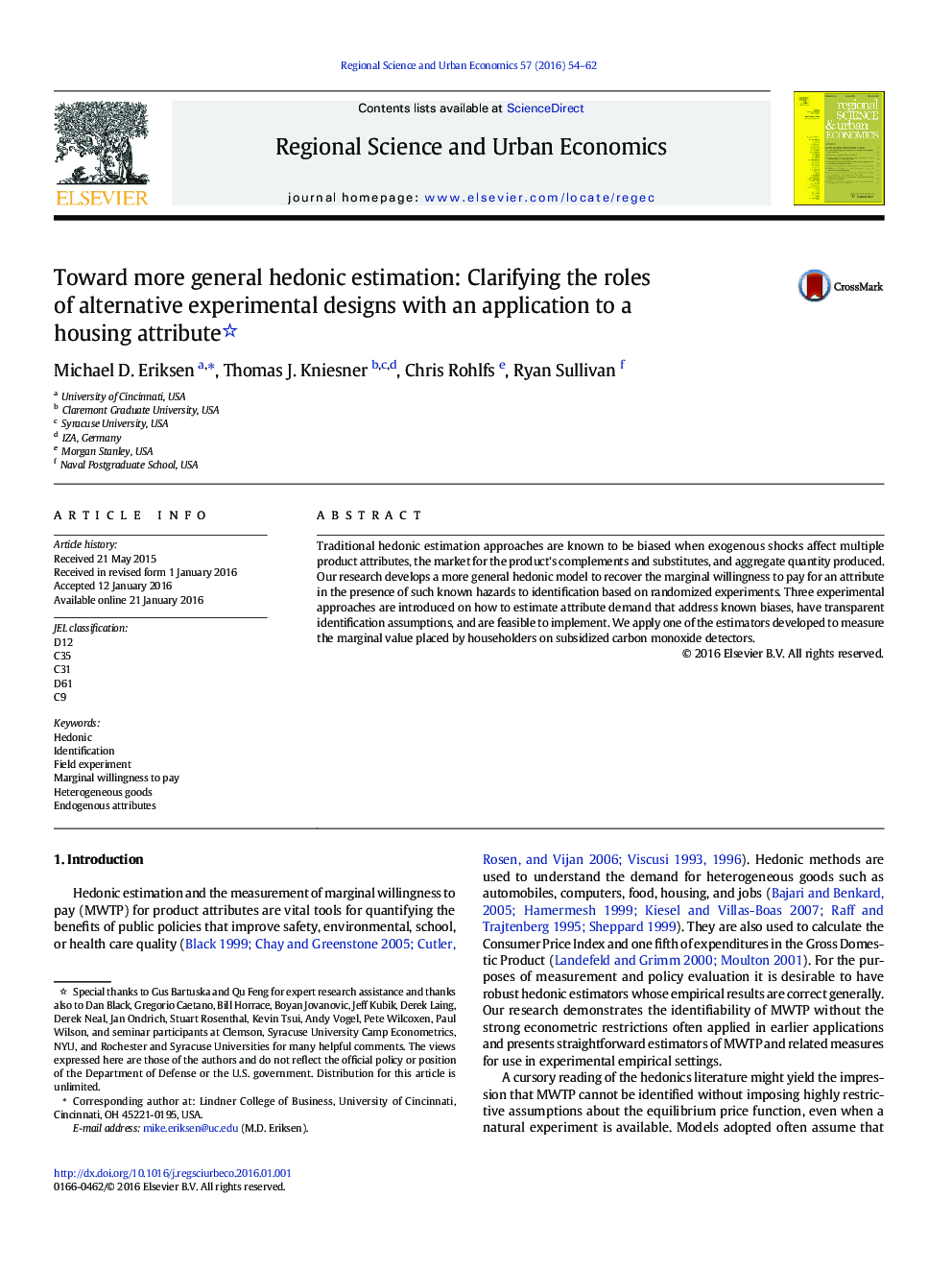| Article ID | Journal | Published Year | Pages | File Type |
|---|---|---|---|---|
| 980475 | Regional Science and Urban Economics | 2016 | 9 Pages |
•We develop a hedonic model to recover the marginal willingness to pay for an attribute within an experimental setting.•We present three feasible experimental approaches to estimate attribute demand with transparent identification assumptions.•We illustrate the use of one of the experimental estimators through a small-scale field experiment.
Traditional hedonic estimation approaches are known to be biased when exogenous shocks affect multiple product attributes, the market for the product's complements and substitutes, and aggregate quantity produced. Our research develops a more general hedonic model to recover the marginal willingness to pay for an attribute in the presence of such known hazards to identification based on randomized experiments. Three experimental approaches are introduced on how to estimate attribute demand that address known biases, have transparent identification assumptions, and are feasible to implement. We apply one of the estimators developed to measure the marginal value placed by householders on subsidized carbon monoxide detectors.
